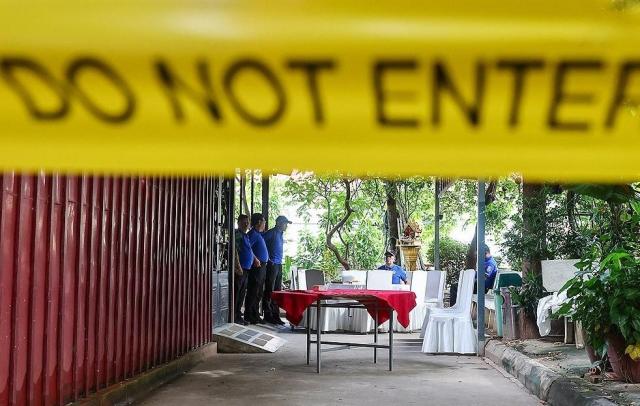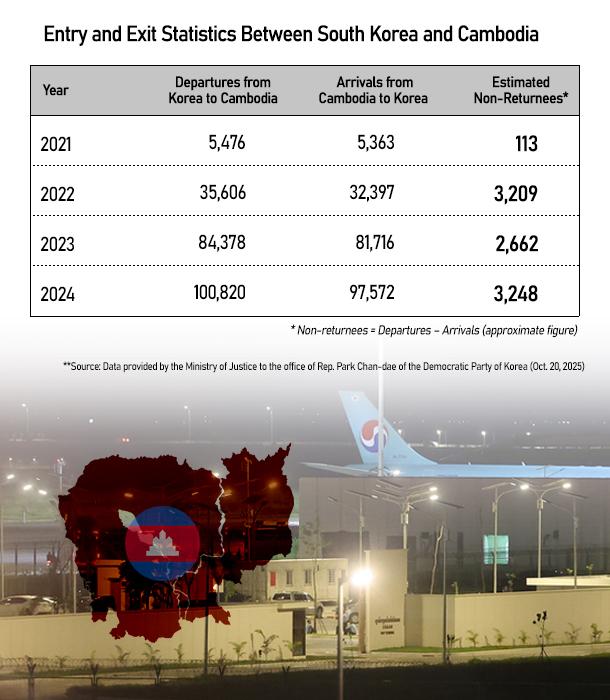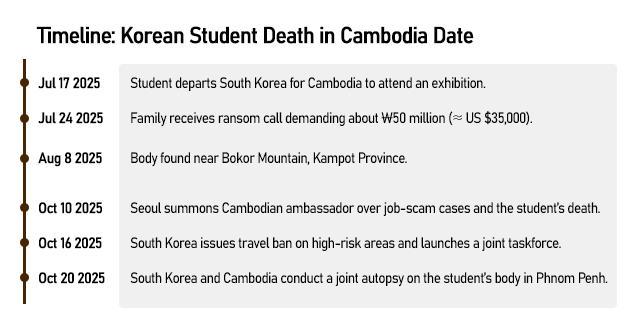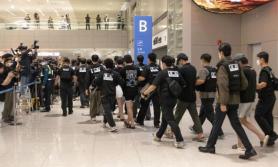
The body of a 22-year-old university student, surnamed Park, was found near Bokor Mountain in southern Cambodia in early August after his family received a ransom call. Cambodian police later arrested several Chinese nationals suspected of running the online fraud compound where Park had been held. Seoul dispatched investigators and conducted a joint autopsy to determine the cause of death.
Data suggest Park's case is far from isolated. According to the Ministry of Justice, the number of South Koreans who traveled to Cambodia but never returned has surged from just 113 in 2021 to 3,209 in 2022, 2,662 in 2023, and 3,248 in 2024. As of August this year, 864 travelers remained unaccounted for.

"This isn't just about Cambodia," said a South Korean businessman who has worked in the Philippines for 15 years. "After Manila tightened its crackdown, many groups simply moved to Cambodia. Some still operate under the radar in the Philippines."
Public outrage deepened after a recording surfaced of Park pleading with his family during ransom negotiations.
The government reacted belatedly — sending senior diplomats to Phnom Penh, summoning the Cambodian ambassador on Oct. 10, imposing a travel ban on high-risk areas on Oct. 16, and performing a joint autopsy.

Washington's latest Trafficking in Persons (TIP) Report kept Cambodia at Tier 3, the lowest ranking, citing official complicity in online-scam trafficking. It found senior Cambodian officials had “financially benefited from the forced criminality and forced labor of victims."
Experts warn the tragedy reflects deeper domestic woes. The youth unemployment rate hovers around 5 percent this year, according to KOSIS. Economic insecurity and temporary jobs continue to drive many young people to seek quick overseas opportunities. Many victims are unemployed young Koreans, lured by social-media ads for "high-paying overseas part-time jobs."
"In Europe and the U.S., AI systems automatically flag job posts linked to trafficking, and platforms that fail to do so face legal consequences,” Lee noted. “That’s prevention-based governance — and it’s time we adopt it.”
Copyright ⓒ Aju Press All rights reserved.




